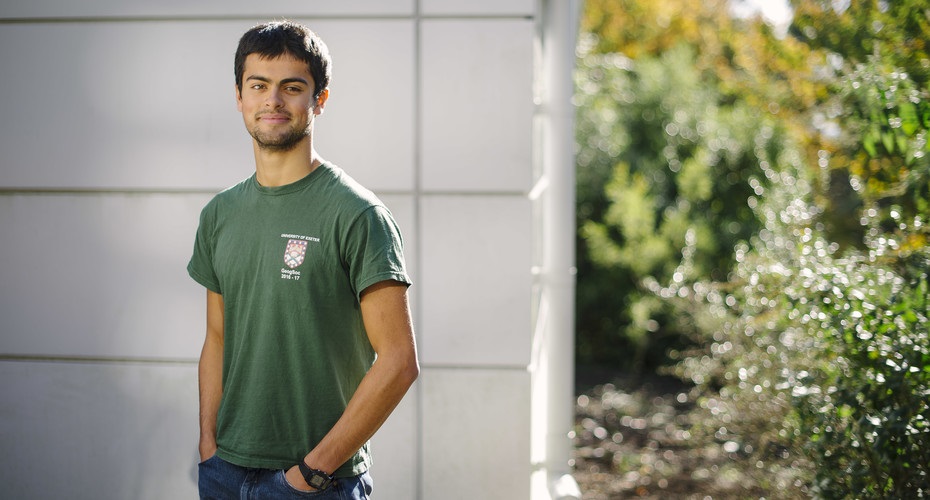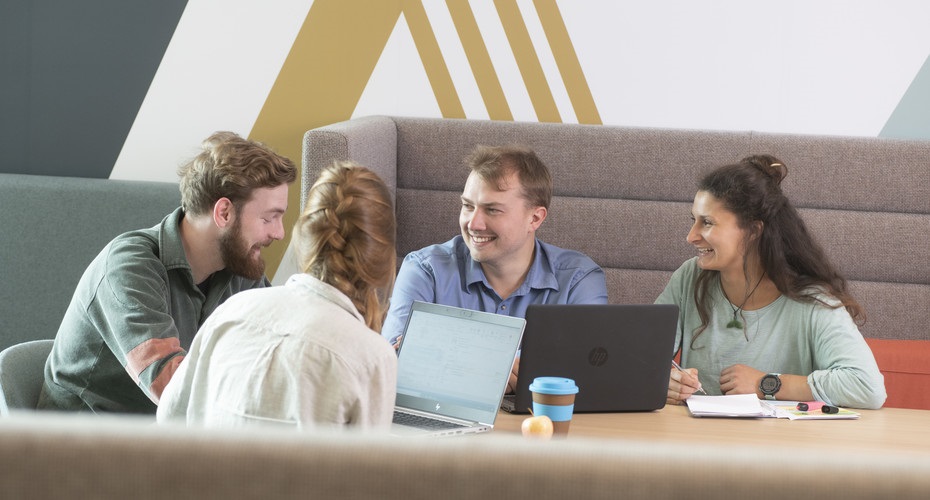| Degrees |
|
|---|---|
| Duration |
| Start date | September, January or April |
|---|---|
| Location | Penryn Campus |
| Study modes | Full time and part time |
Overview
- A thriving, diverse, and international postgraduate research community
- Exceptionally strong links with the international mining industry
- An outstanding research environment with state-of-the-art analytical facilities and laboratories
- Supervisors who are working at the cutting edge of their field
- Supportive and inclusive environment
Contact
Web: Enquire online
Phone: +44 (0)1326 371801
![]()
Top 5 in the UK for Geology
5th in The Times and The Sunday Times Good University Guide 2024
![]()
Multidisciplinary expertise in mining and minerals engineering, geology and surveying
![]()
Leading research facilities include £2 million analytical mineralogy labs and an automated QEMSCAN scanning electron microscope
![]()
Based on our Penryn Campus in Cornwall, a beautiful and diverse county with amazing geosites on your doorstep
Research overview
As a Geology PhD student at the Camborne School of Mines, you will lead research projects that have a significant impact on both your chosen field of study and wider society. We work on a variety of different topics including ore deposit geology, volcanology, palaeontology, palaeoclimate, and structural geology. We have strong links with the mining industry, and also with colleagues in the Geography and Biosciences departments to address issues of past environmental and ecological change.
Potential students with more of a focus on mining engineering, mineral processing, or the environmental impacts of mining may wish to investigate our Mining and Minerals PhD program instead.
Research Groups
Research groups at the Camborne School of Mines conduct research spanning the full range of the geosciences. Groups with a significant Geology focus include:
Our Active Earth research group encompasses multi-disciplinary exploration into volcanology, geophysics, natural hazards, and geothermal processes. We address global challenges around clean energy supply and hazard forecasting, risk, and resilience, while collaborating with industry partners, other research groups, and volcano observatories to deliver high-impact interdisciplinary projects.
We work to promote sustainable development through future supplies of raw materials. We research the fundamental geological processes that form ore deposits and apply mineralogical studies to more efficient and environmentally friendly mineral processing and metals stewardship. We work particularly on:
- Critical metals: rare earths (REE), platinum group elements, niobium, tantalum, indium, tungsten, lithium.
- Granites and metamorphic rocks in South West England and associated ore deposits.
- Processes in large magma chambers such as the Skaergaard intrusion, Greenland.
- The Earth’s most unusual volcanoes that erupt carbonate (‘carbonatite’) magmas.
We have a Critical Metals Alliance with the British Geological Survey.
The Deep Time Global Change group's interest lies in understanding the geological history and governing processes behind some of the major environmental changes that have affected the Earth through deep time. Our work spans the planetary realms from lithosphere to atmosphere, and an age range from the Precambrian to the Quaternary. We work with samples from cores and outcrops, collected as a result of field programmes or through participation in international scientific drilling programmes.
Historically, Camborne School of Mines has worked closely on many major regional projects, and continues to play an integral role in further understanding the processes that led to the geological evolution of the region and formation of the world-class polymetallic orefield.
Active projects are centered on current global research trends:
- Critical metals and their association with granite magmatism and mineralisation
- Advanced geoscience modelling of SW England using the Tellus South West data
- Developing a strategy for improved targeting of enhanced geothermal systems (EGS) energy resources in SW England
- Tectono-magmatic controls on granite pluton construction on the formation of the SW England metallogenic province
- Variscan/post-Variscan tectonic evolution
- Upper Palaeozoic stratigraphy and sedimentology
- Deep Digital Cornwall
Research based mainly on environmental or social aspects of mining, such as environmental mineralogy, health and safety, mining-related policy, and social license to operate is grouped together here. Many of the large technical projects at Camborne School of Mines also contain environmental and social work packages.
How to apply
Entry requirements
An appropriate degree in Geology or Mining or a related subject, normally at 2:1 level or above.
Requirements for international students
If you are an international student, please visit our international equivalency pages to enable you to see if your existing academic qualifications meet our entry requirements.
English language requirements
International students need to show they have the required level of English language to study this course. The required test scores for this course fall under Profile E: view the required test scores and equivalencies from your country.
PhD and Research Programme application process
The information below applies to self-funded PhD, MPhil and Masters by Research applicants, but if you are applying for a funded PhD studentship, please follow the specific instructions related to that application.
- Pinpoint your PhD research area
- Investigate whether this area is available at Exeter
- Ensure that you meet our English language entry requirements (international students only)
- Construct and refine your PhD research proposal
- Approach your potential supervisor(s)
- Apply online
PhD studentships pages can be accessed in our Funding lists on Finance tabs under each research topic page, and are also available from the Postgraduate Research search results pages on this site, on the PhD projects tab.
Full details of the application process can be found on our Apply now webpage.
Fees and funding
Tuition fees per year 2024/25
- Home: £4,786 full-time; £pro-rata part-time
- International: £28,500 full-time
For those studying for more than one year, our fees are expected to increase modestly in line with Consumer Price Inflation measured in December each year. More information can be found on our Student Finance webpages.
Tuition fees per year 2023/24
- Home: £4,712 full-time; £pro-rata part-time
- International: £26,500 full-time
For those studying for more than one year, our fees are expected to increase modestly in line with Consumer Price Inflation measured in December each year. More information can be found on our Student Finance webpages.
Tuition fees per year 2022/23
- Home: £4,596 full-time; £pro-rata part-time
- International: £24,500 full-time
For those studying for more than one year, our fees are expected to increase modestly in line with Consumer Price Inflation measured in December each year. More information can be found on our Student Finance webpages.
Supervision
- We are continuously investing in growing and expanding our research expertise, awith a record of attracting major projects and talented individuals.
- Weekly gatherings take place over tea and cake, ensuring strong relationships are built with every member.
- In addition to your project supervisor, every student is assigned a mentor who falls outside your project for personal support and advice.











